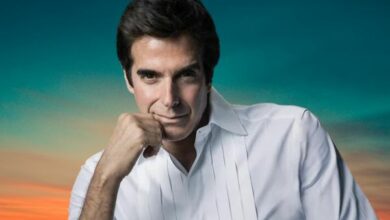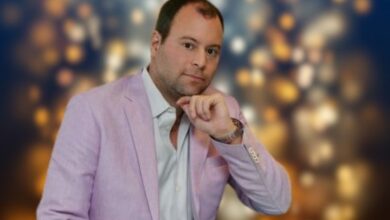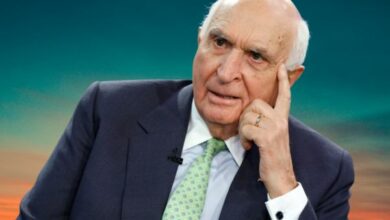Extradition fight looms for Carlos Ghosn escape duo

On Wednesday evening, in an elegant renovated house in a swish district of Beirut, Carlos Ghosn was nearing the end of the 143rd day since his escape from Japan, a vanishing act described by US prosecutors as one of the “most brazen and well orchestrated” in recent history.
Around the same time, almost 9,000 miles away in Boston, the two Americans who US and Japanese prosecutors say made all this possible — Michael Taylor, an ex-Green Beret trained to parachute behind enemy lines and destroy Soviet nuclear weapons, and his 27-year old son, Peter Taylor — were being arrested for their alleged role in the grand deception.
Within the next 10 days, said people in Japan with knowledge of the situation, Tokyo will formally make its extradition request to the US and attempt to bring the father-and-son duo to justice.
That means, said lawyers, that both men could potentially spend more than four years in a Japanese prison if convicted — the very fate that they used their specialist skills and black-ops experience to spare the former Nissan chairman. Mr Ghosn had been on bail awaiting trial on charges of financial crimes when he escaped, charges he has consistently denied.
But between their custody in Boston and any prospect of a trial in Tokyo, said legal experts, stands a potentially thorny political negotiation between the US and Japanese authorities.

In the Taylors’ arrest warrants, US prosecutors note the “overriding national interest” in complying with its obligations to Japan under the extradition treaty.
Michael Taylor has also previously claimed an extensive network of contacts in the US government in a bribery case for which he ultimately served 14 months. His lawyers in 2015 said Mr Taylor had worked as a “law enforcement source and intelligence asset”.
In a statement, Paul Kelly, an attorney for the Taylors, said they “fully expect to challenge the request on several legal and factual grounds” once they receive an actual extradition request.
“Michael Taylor is a distinguished veteran and patriot, and both he and his son deserve a full and fair hearing regarding these issues, both before the courts and the executive branch,” Mr Kelly said.
The interrogations of the Taylors might add detail to an already lurid account of the escape. Documents filed in the US to support the Taylors’ arrest warrants unravel some of the subterfuge that spirited Mr Ghosn — via bullet train and taxis — from central Tokyo to the hold of a private jet in Osaka.

The Taylors join a growing list of people facing the consequences of Mr Ghosn’s flight from bail. In Turkey, four pilots, an aviation manager and two cabin crew have been charged with involvement in the private jet flights that brought Mr Ghosn — at one stage hidden in a box used to transport musical equipment — from Japan to Lebanon. Five of the seven are behind bars in Istanbul’s notorious Silivri prison. Tokyo prosecutors continue a nationwide hunt for the Japanese accomplices.
For the past six weeks, Mr Taylor, 59, and his son, 27, have lived in Boston, having chosen to leave Lebanon for the US this year. In January, Japan issued an arrest warrant for the two Taylors.
“It doesn’t actually matter what the allegations are against these two men,” said Yasuyuki Takai, a prosecutor-turned-defence lawyer. “Ghosn will never face a trial in Japan, so prosecutors want to get a full picture of what happened including his Japanese accomplices.”
A hearing on whether they should be granted bail is expected next week. Extradition proceedings will not begin until Japan has submitted a formal request, which is being prepared by Tokyo prosecutors.
US extradition proceedings have two parts. In the judicial process, magistrate judge Donald Cabell will determine the relatively narrow legal questions about the offences they are charged with in Japan and decide if the pair are extraditable. But ultimately, the decision to extradite or not will be taken by the state department, and it could be a political one.
“Law enforcement is never an entirely black and white issue of the law itself. There’s always a political overlay to some extent. This is about our bilateral relationship with Japan and it is about whether or not we trust their system to treat our citizens fairly,” said Barak Cohen, a former federal prosecutor and partner at Perkins Coie.
The state department referred questions to the Department of Justice. A justice department spokeswoman said: “The United States extradites its nationals, and encourages other countries to do the same.”
Japan only has an extradition treaty with the US and South Korea, and it has made just a handful of extradition requests in the past. It has struggled to enlist other countries to sign the treaty due to differences in legal systems and human rights concerns regarding the death penalty and the so-called hostage system under which Mr Ghosn was subjected to long hours of interrogations without a lawyer present. Mr Ghosn has complained of his treatment in Japan.
Its request for the Taylors follows a rare decision Japan made last year to extradite two citizens to the US for their alleged role in a $1.5bn Ponzi scheme. “Unless there are any special circumstances, I think there is a high possibility that [the Taylors] will be handed over to Japan,” said Masahiro Aichi, expert on criminal law at Chukyo University.
In addition to the prospect of extradition, two people close to the Taylors said there had been issues with payments from Mr Ghosn, possibly related to Lebanon’s severe banking crisis. The payments had not been agreed upon in advance, although they said Mr Ghosn had arranged for expenses for the escape to be paid at the time.
Mr Ghosn’s representative in London declined to comment on either the arrest of the Taylors or the claims made about non-payment.
Additional reporting from Chloe Cornish in Beirut and Laura Pitel in Ankara
(Note: This is a Article Automatically Generated Through Syndication, Here is The Original Source










